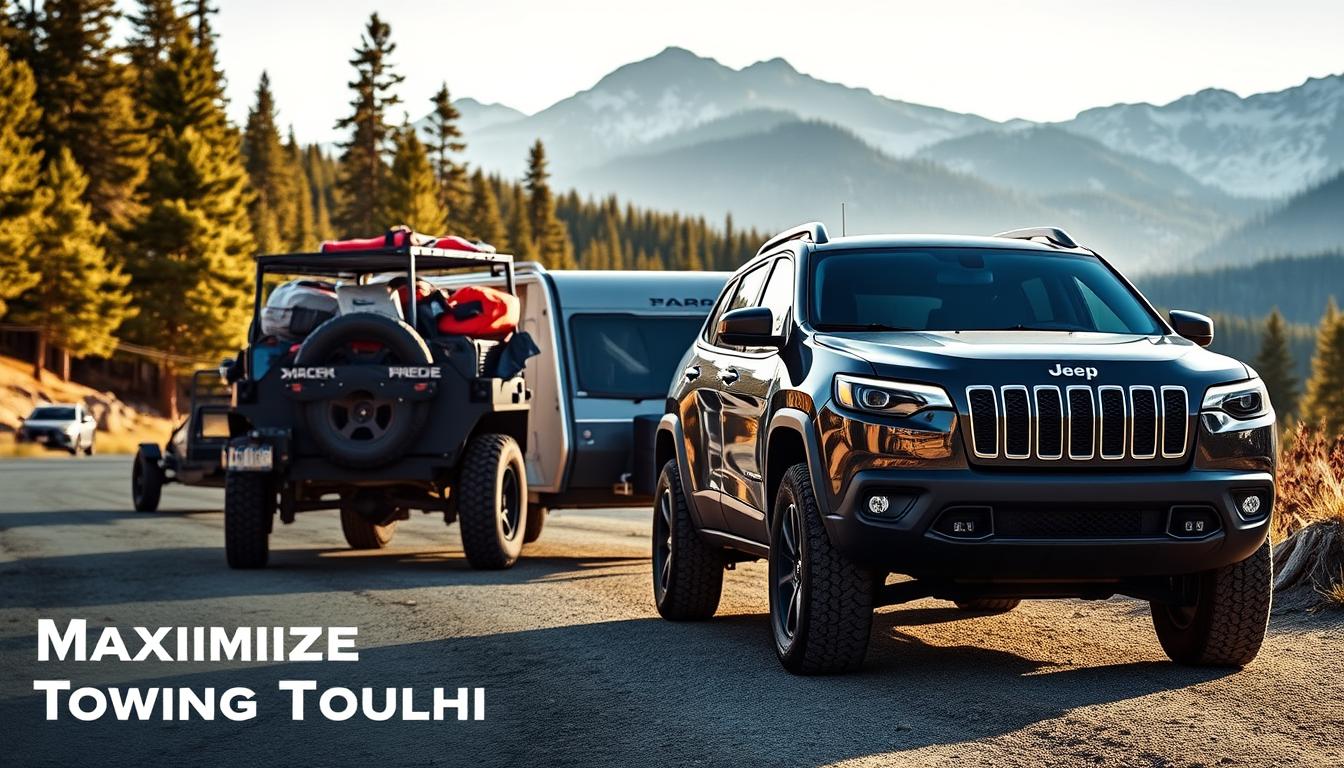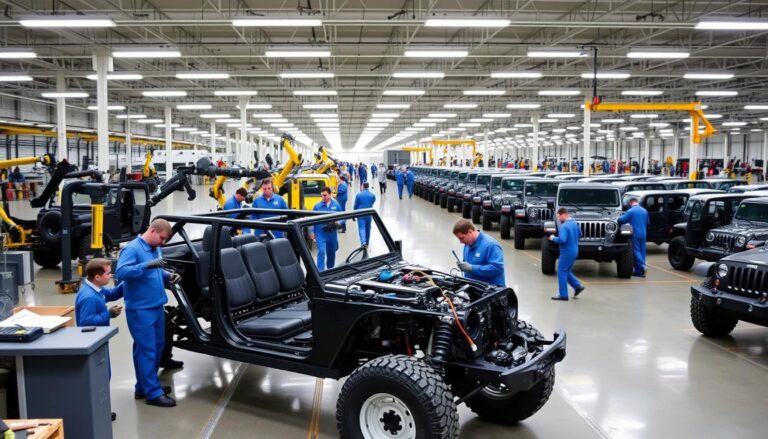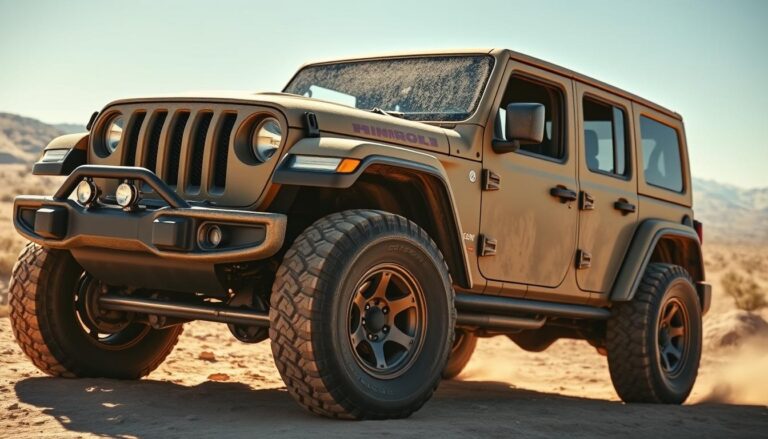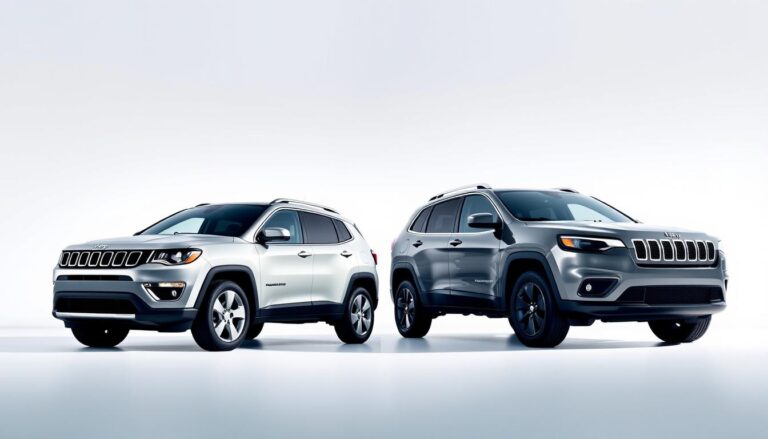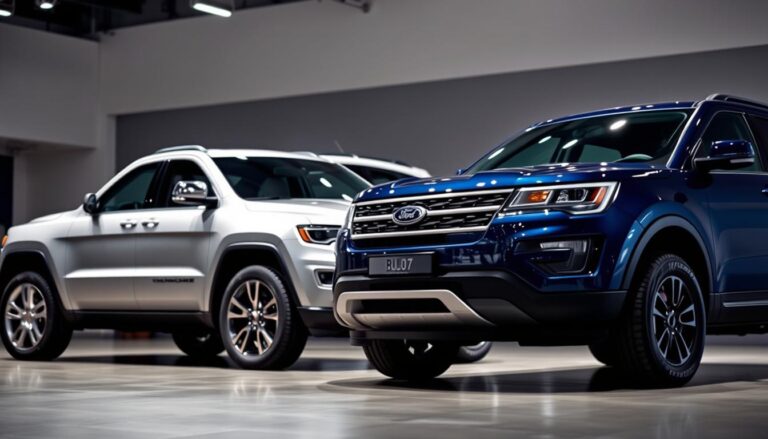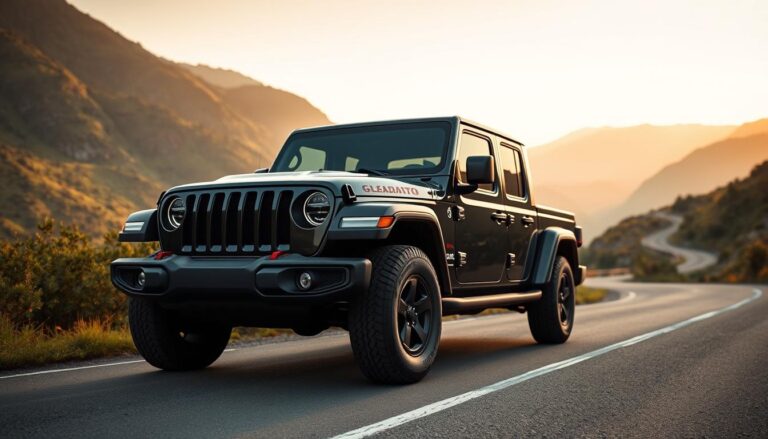Maximize Your Jeep Cherokee’s Towing Capacity
Unlocking your Jeep Cherokee’s towing power turns it into a strong hauling vehicle. It’s perfect for weekend camping, towing a boat, or moving heavy items. Knowing your Jeep Cherokee’s towing capacity is key for safe and efficient transport.
The Jeep Cherokee is a reliable SUV for many tasks. It has impressive towing abilities, making it great for families, outdoor lovers, and professionals. It’s a dependable vehicle with strong pulling power.
Several factors affect your Jeep Cherokee’s towing performance. Engine type, trim level, and the right equipment are all important. Experienced owners know it’s not just about power. It’s about preparation and knowledge too.
This guide will teach you all about Jeep Cherokee towing. You’ll learn about capacity ratings, choosing the right equipment, and safe towing practices. You’ll become an expert at handling your vehicle’s hauling needs.
By the end of this guide, you’ll know how to make your Jeep Cherokee a top-notch towing machine. You’ll be ready to tackle any towing challenge with confidence.
Understanding Jeep Cherokee Towing Capacity
The Jeep Cherokee is great for towing, making it perfect for many activities. Knowing how much it can tow is key for those who haul trailers, boats, or other gear.
Base Model Capacity Ratings
Jeep Cherokee towing specs change with the trim and setup. Here’s what the base models can handle:
- Sport and Latitude trims: Up to 2,000 pounds
- Limited and Trailhawk trims: Up to 4,500 pounds
Engine Options and Their Impact
The engine you choose greatly affects the Cherokee’s towing power. Here’s how different engines perform:
| Engine Type | Horsepower | Towing Capacity |
|---|---|---|
| 2.4L Tigershark | 180 hp | 2,000 lbs |
| 3.2L Pentastar V6 | 271 hp | 4,500 lbs |
| 2.0L Turbo | 270 hp | 4,000 lbs |
Weight Distribution Basics
Safe towing depends on proper weight distribution. The Cherokee’s design helps by:
- Providing a balanced chassis
- Offering advanced trailer sway control
- Implementing electronic stability management
Always check your vehicle’s manual for towing advice and guidelines.
Essential Towing Package Components for Your Cherokee
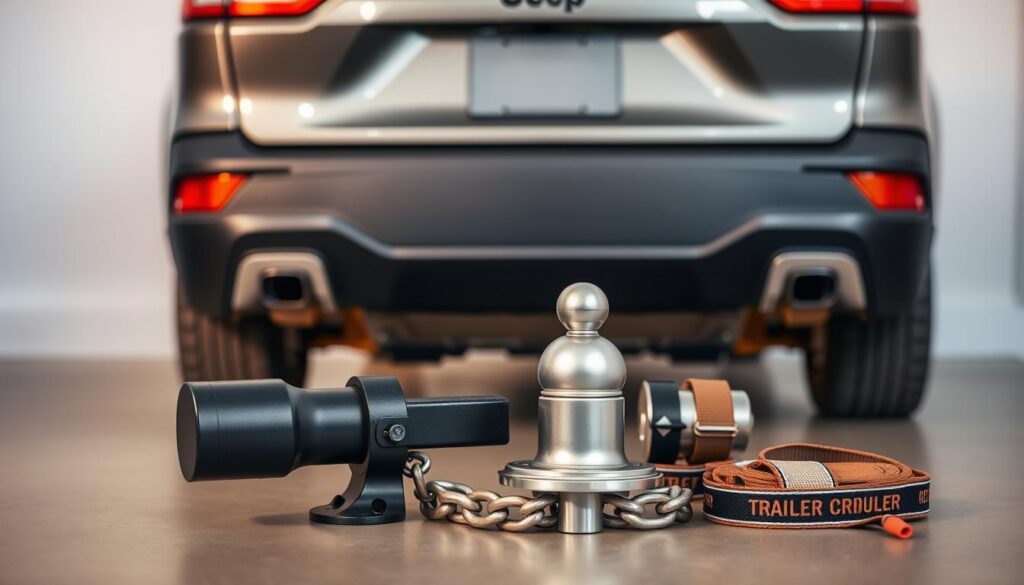
Adding the right towing package to your Jeep Cherokee makes it a strong hauler. Choosing the right parts is key for safe and efficient towing. This ensures your Cherokee can handle the load well.
The heart of towing is a sturdy jeep cherokee towing hitch. It links your vehicle to trailers, boats, or heavy loads. This keeps everything stable and balanced during transport.
- Receiver Hitch: The main spot for attaching trailers
- Wiring Harness: Connects electrical systems for trailer lights and brakes
- Weight Distribution System: Balances load across vehicle axles
- Trailer Brake Controller: Synchronizes braking for heavy loads
Choosing the right parts for your Cherokee model and year is important. Professional installation makes sure everything works together perfectly. This avoids safety risks while moving heavy loads.
Getting a full towing package boosts your Cherokee’s use and keeps it safe. It prevents damage from heavy loads and keeps your vehicle in top shape.
How to Choose the Right Towing Equipment
Choosing the right towing equipment for your Jeep Cherokee is important. It affects how well your vehicle can tow and keeps everything safe. The right setup makes towing heavy loads easier and safer.
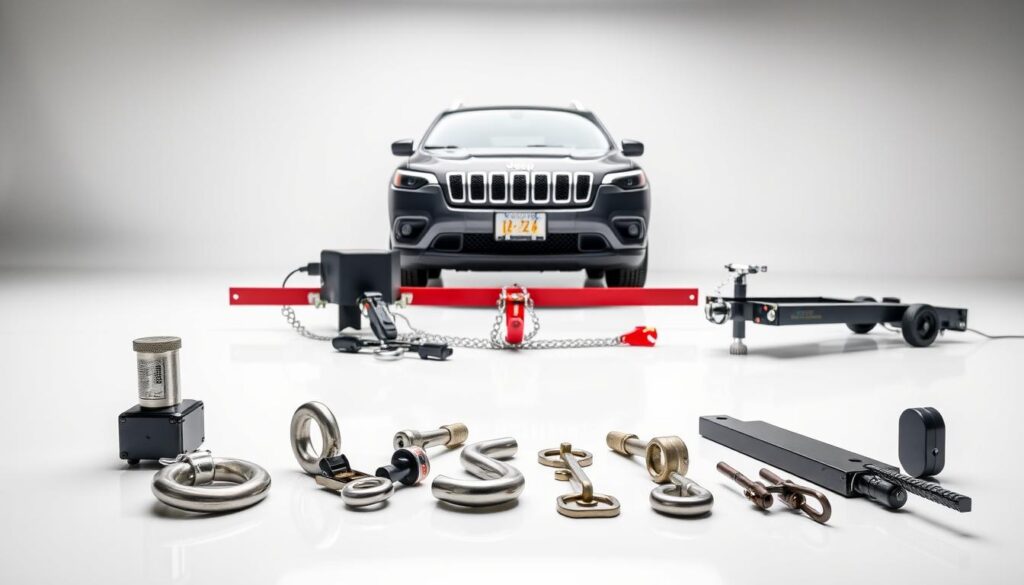
Before towing with your Jeep Cherokee, knowing your towing system is key. The jeep cherokee towing capacity chart helps you understand what your vehicle can handle. It guides you in picking the right equipment.
Hitch Types and Classifications
Choosing the right hitch is vital for good towing with your Jeep Cherokee. Hitches come in different classes for different weights:
- Class I: Lightweight trailers (up to 2,000 lbs)
- Class II: Medium-duty trailers (up to 3,500 lbs)
- Class III: Heavy-duty trailers (up to 8,000 lbs)
- Class IV: Substantial loads (up to 10,000 lbs)
Wiring Harness Requirements
A good wiring harness is key for your trailer’s electrical needs. Look for:
- 4-pin connectors for basic lighting
- 7-pin connectors for advanced electrical needs
- Compatibility with your specific Cherokee model
Brake Controller Options
Brake controllers are vital for safe towing. They make sure your Jeep and trailer brake together smoothly. Modern electronic brake controllers offer precision control and enhanced safety features.
Choosing the right towing equipment means matching your needs with your Jeep Cherokee’s abilities. Always check your vehicle’s manual. Consider getting professional help for the best safety and performance.
Preparing Your Jeep Cherokee for Heavy Loads
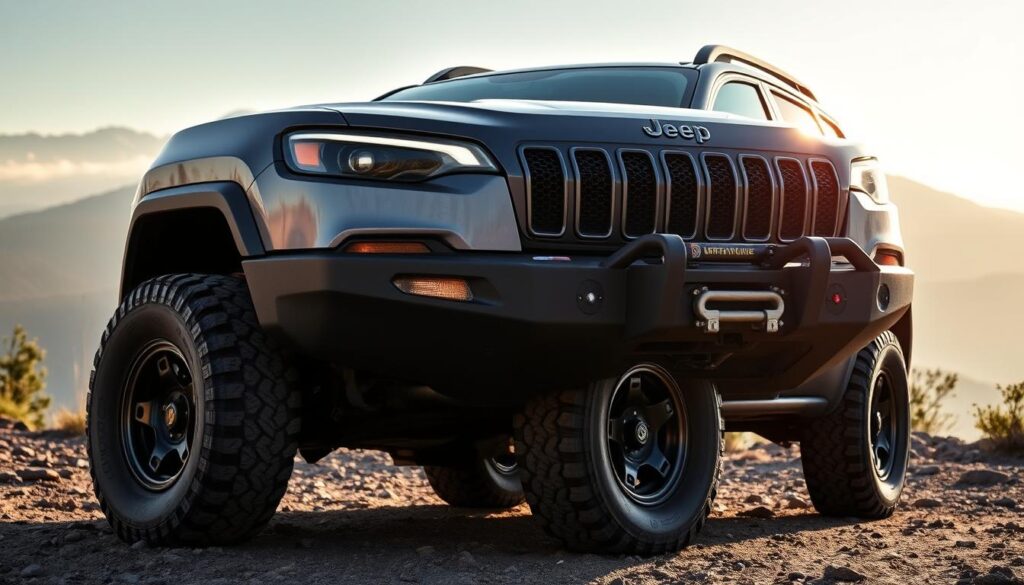
Getting your Jeep Cherokee ready for towing needs careful steps and attention. The towing capacity depends on maintenance and planning. Drivers must know key steps for safe towing.
Before towing, check these important areas of your Jeep Cherokee:
- Suspension components
- Brake system integrity
- Tire condition and pressure
- Transmission fluid levels
- Cooling system functionality
Tire preparation is key for towing. Proper inflation is essential for stability and to prevent blowouts. Check tire pressure when cold and follow the manufacturer’s load specs.
Weight distribution affects your Jeep Cherokee’s towing capacity. Consider these factors:
- Ensure weight is evenly distributed across the trailer
- Use appropriate weight distribution hitches
- Balance cargo placement carefully
- Verify total combined weight remains within vehicle specifications
Regular maintenance is vital for heavy towing. Schedule a full vehicle inspection with a certified Jeep technician. They can check if your Cherokee is ready for tough towing tasks.
Best Practices for Safe Towing Operations
Safe towing with a Jeep Cherokee needs careful planning and skilled driving. It’s important to know the safety rules to protect your vehicle and cargo.
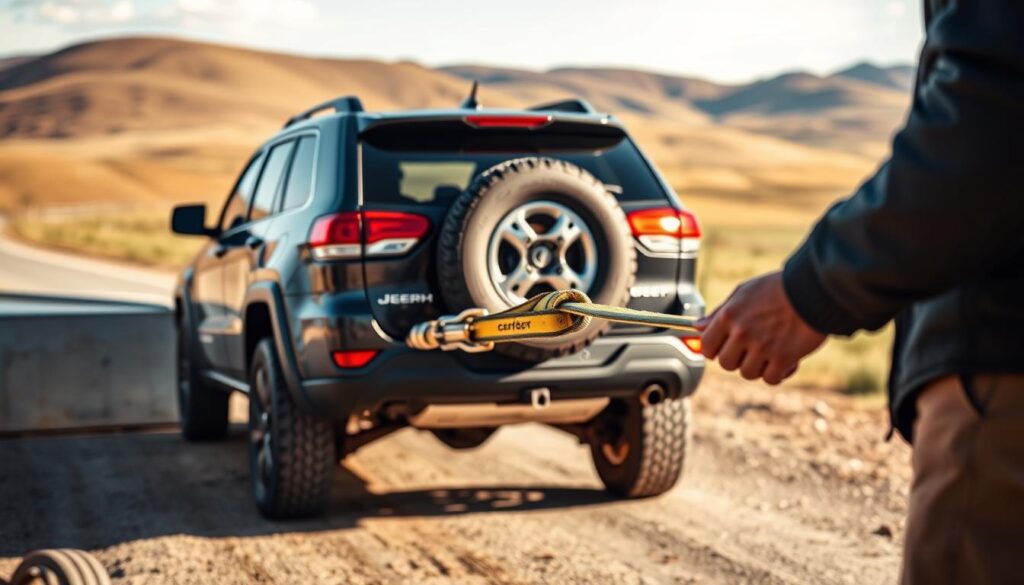
Pre-Towing Checklist
Before you start towing, do a detailed check to ensure everything is ready:
- Check trailer hitch connections
- Verify tire pressure on both vehicle and trailer
- Inspect brake systems thoroughly
- Confirm weight distribution is balanced
- Test all electrical connections
Proper Loading Techniques
Proper loading boosts your Jeep Cherokee’s towing power. Distribute weight evenly across the trailer, with 60% of cargo weight at the front.
- Position heavier items low and close to the trailer’s centerline
- Secure all cargo with appropriate straps
- Avoid overloading beyond recommended capacity
Highway Driving Tips
Driving on highways with a trailer needs special skills:
- Maintain slower speeds
- Increase following distance
- Use lower gears when descending hills
- Make wider turns to accommodate trailer length
Following these tips helps keep your towing trips safe and successful.
Maintaining Your Cherokee’s Towing Performance
To keep your Jeep Cherokee ready for towing, you need to take care of it regularly. The towing capacity of your jeep cherokee depends a lot on how well you maintain it.
Keeping your jeep cherokee towing package in good shape is key. There are a few important things to focus on to make sure it can tow well:
- Inspect trailer hitch and mounting points quarterly
- Check transmission fluid levels before long trips
- Evaluate brake system components regularly
- Monitor tire pressure and suspension wear
There are also some essential maintenance steps to avoid towing problems:
- Lubricate trailer connection points
- Replace worn suspension components
- Perform transmission fluid exchanges
- Balance and rotate tires
Proactive maintenance extends your vehicle’s towing life and protects your investment. Specialized service centers can do detailed inspections to find problems early.
Getting professional diagnostics every 12,000 miles can catch early signs of wear. This way, you’ll keep your Jeep Cherokee running smoothly and safely.
Common Towing Challenges and Solutions
Towing with a Jeep Cherokee can face some challenges. These can affect your vehicle’s performance and safety. Knowing how to tackle these issues helps make the most of your Jeep Cherokee’s towing ability. It also ensures a smooth towing experience.
Handling Trailer Sway
Trailer sway is a dangerous issue during towing. Jeep Cherokee towing specs suggest several ways to reduce this risk:
- Ensure proper weight distribution across the trailer
- Use a weight distribution hitch
- Maintain appropriate tire pressure
- Reduce speed during windy conditions
Transmission Protection Strategies
Protecting your Jeep Cherokee’s transmission when towing heavily is key. Here are some protective steps:
- Use the appropriate transmission cooler
- Monitor transmission fluid temperature
- Avoid aggressive acceleration
- Consider a transmission temperature gauge
Cooling System Management
Keeping your vehicle’s cooling system in check is vital for optimal towing. Here are some tips:
| Cooling System Component | Recommended Action |
|---|---|
| Radiator | Inspect for clean fins and proper coolant levels |
| Coolant | Use manufacturer-recommended coolant |
| Fans | Check electric fan operation before long trips |
Proactive maintenance and careful attention to these key areas will help you overcome common towing challenges and protect your Jeep Cherokee’s performance.
Upgrading Your Cherokee’s Towing Capabilities
To get the most out of your Jeep Cherokee’s towing, you need smart upgrades. The 2021 Jeep Cherokee has great towing power. But, you can make it even better with the right changes.
Here are some key upgrades for better towing:
- High-performance transmission coolers
- Enhanced suspension systems
- Heavy-duty brake upgrades
- Weight distribution hitches
Keeping your transmission cool is key for towing. Aftermarket coolers help avoid overheating. This keeps your vehicle’s systems safe during long tows.
Focus on three main areas for upgrades:
- Suspension reinforcement
- Brake system enhancements
- Powertrain optimization
Getting these upgrades installed by pros is important. They make sure everything works well together. Talking to certified Jeep techs helps pick the best upgrades for your needs.
If you’re watching your budget, start with small upgrades. Choose changes that make a big difference in towing power. This way, you get the most bang for your buck.
Understanding Towing Laws and Regulations
Jeep Cherokee owners need to know towing laws well. Each state has its own rules about towing. Knowing these rules is key to safe and legal towing.
Drivers should think about a few important legal points when towing with a Jeep Cherokee:
- Weight limits for different vehicle classes
- Needed licensing endorsements
- State rules for trailer registration
- Rules for safety equipment
A detailed Jeep Cherokee towing capacity chart is vital. It shows what your vehicle can tow safely. This chart helps avoid legal trouble and keeps you safe on the road.
Important legal things to remember include:
- Gross Vehicle Weight Rating (GVWR) compliance
- Right trailer brake systems
- Rules for visibility and signals
- How to distribute the load
Always check with your local DMV for the latest towing laws. Knowing the rules keeps you safe and legal.
Conclusion
Mastering Jeep Cherokee towing capacity needs careful planning and knowledge. Owners can unlock their SUV’s full towing power by knowing key factors. These include weight distribution, equipment choice, and safety rules.
Safe towing starts with thorough vehicle prep. Knowing your Jeep Cherokee’s towing capacity prevents mechanical stress and ensures top performance. Proper maintenance, the right equipment, and following guidelines protect your vehicle and improve your towing experience.
Professional maintenance and ongoing learning are vital for safe towing. Staying updated on vehicle specs, legal rules, and best practices helps owners tackle towing challenges. Whether it’s for fun or work, a well-prepared vehicle makes a big difference.
Responsible towing is more than just knowing specs. It’s about understanding your vehicle’s limits, prioritizing safety, and caring for your Jeep Cherokee. With the right approach, your Cherokee becomes a reliable partner for all your needs.

